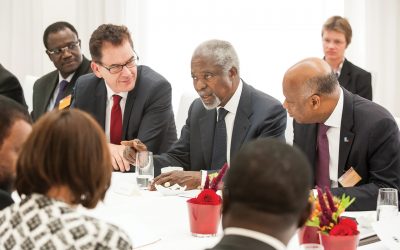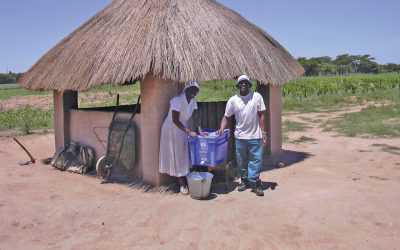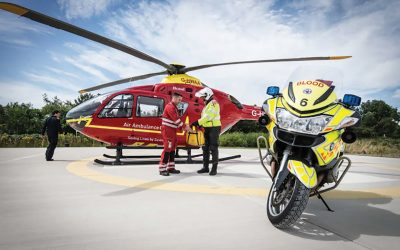A refugee, who had been rescued from a small boat going from Libya to Italy, was asked why he was making such a hazardous journey. He replied: “I am fleeing from a life worse than death.”
He had already made the dangerous transit from Eritrea across Africa, to a transition camp in Libya, and then had taken a small boat across the Mediterranean to Italy and another transition camp. Nigerians fleeing the oppression in the north of their country, as well as Iraqis and Syrians take the same route. They come in their thousands every day and one organisation is there with them helping in whatever way it can.
Médecins Sans Frontières (MSF) reacts to a humanitarian challenge wherever it happens in the world and the refugee crisis in North Africa, Greece and Turkey is no exception. This charity is funded 90% from private donations, with doctors and nurses volunteering their time and expertise to help people in great need.
Dr Paul McMasters is the President Director of the organisation in Europe and was off to a meeting in Amsterdam as I met up with him. Paul began by telling me a little of the background of MSF: “We started 44 years ago in the Nigerian war and have slowly grown with more volunteers joining over the years and helping with the tragedies in Rwanda, and Bosnia and Herzegovina. We are now an organisation that tries to respond to any communities in crisis, be it refugees, conflict zones, epidemics or what I call chronic communities in crisis such as South Sudan, Congo and Haiti.”
We are a humanitarian organisation. We are neutral, impartial, very secular and we need people who will respect that.”
Paul wanted to stress to me the way MSF works and went on to say: “We are not a development organisation. We don’t go in to rebuild a whole country’s health structure, but we have been in the Congo for 20 years, helping and supporting. We have 30,000 people in MSF with volunteers alongside the workers supporting places like South Sudan – a community in crisis for a long time.”
Paul goes to a country that is hit by disaster to assess the situation and then calls for volunteers and he has quite a bit of experience leading teams for over six years.
As Paul explained: “We require qualified doctors and nurses with a certain amount of maturity. They have to be able to hold it together in some very difficult situations. Our volunteers have to respect cultural differences and gender difference is an important aspect. People who volunteer are usually either at the beginning of their careers, aged between 28 and 35 before they get involved in family life, or those who are in the latter part of their career.”
Paul continued: “We are a humanitarian organisation. We are neutral, impartial, very secular and we need people who will respect that. Some feel politically very strongly, but we are always there as medics first.”
We did discuss the role of Rotary and Rotarians in the situations that MSF finds itself, and Paul admitted that he had come across their work.
We have tremendous respect for what Rotarians do in emergency situations and acknowledged Rotary is there for the longer term.
When asked about the main areas of deployment, Paul went on to explain: “Our major deployments are central Africa, especially South Sudan, which has been fighting for many years now, and the Middle East in such places as Syria and Iraq.” Paul was not prepared to go into detail because of the sensitive nature of the deployments, except to say: “The work in Syria is immensely challenging and we are working in a number of clinics and hospitals to help them through their trauma.”
Paul did go on to mention Afghanistan. We could not finish the interview without me raising the subject of Kunduz in Afghanistan and expressing my concerns on behalf of Rotary for the disaster at the MSF hospital, which was hit several times during sustained bombing.
The interview with Paul was set up just as the tragedy had hit the organisation and Paul went on: “It is a great tragedy and we are calling for an enquiry under the Geneva Convention. Increasingly our clinics and hospitals are under threat, especially in places like Syria and Yemen. We have treated 20,000 people and carried out 6,000 surgeries in recent months, so it is not as if we are doing minor stuff. We are doing major work there, in Helmund and Lashkar Gah, but sadly no longer in Kunduz.”
I mentioned to Paul that I get the impression that MSF goes into areas of high risk and Paul explained: “We are a medical organisation and we are there as medics and sometimes we go into areas where sadly the risk is very high and recently we have lost very valuable teams in Kunduz and also in Nepal in a helicopter crash.”
We hear reports concerning MSF volunteers almost every day of the week now and talking with them is humbling in so many ways. On the next page I speak with a medic who has been deployed on a rescue boat between Libya and Italy. MSF is a fantastic organisation with equally dedicated members.


























































